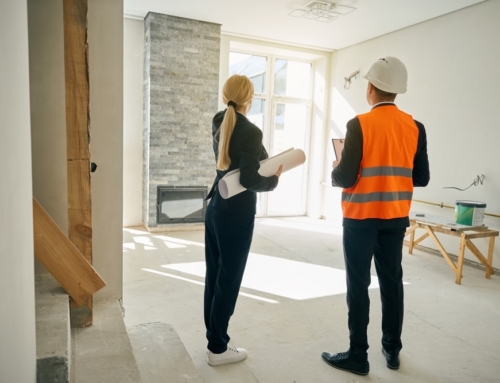It’s a scary time to be thinking about buying a home. However, there’s opportunity to be had for the right buyers, even during these tough times. I recently became a first-time homebuyer when I purchased my condo in October 2011. It was a thrilling, bumpy road, and I’m eager to share my experiences and knowledge with you in this blog series. I’ll cover a lot of topics from saving for a down payment, to dealing with unexpected surprises after you move in (hint: the previous owners left three cats). Today I want to take a look at special considerations first-time homebuyers may not think about when planning their budget.
Have you ever watched the show, “Say Yes To The Dress?” I love watching brides-to-be pick out their perfect wedding gown (and judge the dresses I wouldn’t dream of wearing), but there are some very smart lessons in this show. A wedding gown is a big financial investment, and a house or condo is probably the biggest investment you will make. The wedding dress consultants always ask for the bride’s budget, and she helps keep the shopping trip within that budget. Too often a bride will ask to try on a wedding gown double or even triple her budget, “just to see.” Without fail, the bride falls in love with the extravagant dress and is heartbroken to find her budget won’t accommodate the purchase.
This is a great lesson for first-time homebuyers. It may be fun to go visit open houses and peek into luxury kitchens, but if you’re serious about finding your first home, you need to stick to your budget.
Knowing your price range before you start shopping will save you a lot of time, stress, and help you find your perfect home. Before you start hitting open houses and scheduling visits with your real estate agent, take a look at your finances and ask yourself some tough questions.
Down payment: How much money do you have saved? Can you get more money from other sources? Can a relative help out? Have you researched down payment assistance programs? The kind of mortgage and home you can afford will depend greatly on your down payment.
Income: How much money do you take home each month? Many first-time homebuyers can be quickly overwhelmed by their mortgage if their income doesn’t support their mortgage payment. You may have the reasonable expectation that your salary will go up over the next few years, but if you can’t afford your mortgage when you buy your home, you’re not going to be there for long. Bankrate.com advises no more than 28 percent of your gross monthly income should go toward housing expenses, but a mortgage lender is also going to look at how much of your income goes toward other debt obligation.
There are lots of calculators and tools online to help you determine how much of a mortgage you can afford, including one from Bankrate.com which allows you to plug in both income and debt numbers. For all of these calculators you’ll need to know your down payment, income, mortgage interest rate and property tax. Mortgage brokers can also help you figure out how much mortgage you can afford, and what kind of mortgage a lender is willing to give you.
Debt: How much debt do you have? As a first-time homebuyer you’re more likely to have debt other than a mortgage. It doesn’t matter to a mortgage lender how much income you have if you’ve racked up big credit card debt, or make huge student loan payments every month. This is another sliding number over time, like income. You may make more money soon, and you may pay off your debt in a few years, but you have to pay a mortgage now.
Location: The real estate adage “location, location, location” still applies when calculating your budget. However, I’m not talking about being able to afford your house. Can you afford your neighborhood? If you’re thinking of moving to a new neighborhood, do some research:
Schools. Are there good public schools or will you want to send your children to private school?
Shopping. Where is the nearest grocery store? Is it a big supermarket where you can get the best deals in bulk, or will you have to shop at a pricier market?
Transportation. If you add 10 miles to your commute every day, you’re going to be shelling out quite a bit more for gas and car maintenance. Even if you take public transportation, if you add a transfer to your commute, you’ll be paying more every month.
Being a first-time homebuyer is an exciting experience, and it’s easy to get swept up in the thrill of buying your own home. That home isn’t going anywhere. Take your time, do your research and ask questions. As a first-time homebuyer, you may not know the right questions to ask. Build a team with an experienced real estate agent, a mortgage broker and real estate lawyer. Your experts should walk you through every step of the process to your first home. Good luck.






Leave A Comment